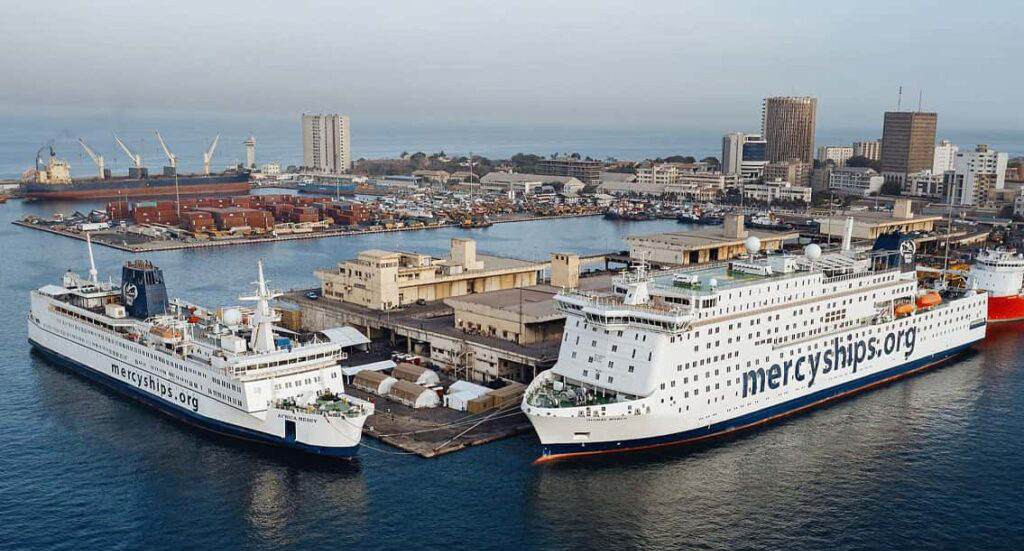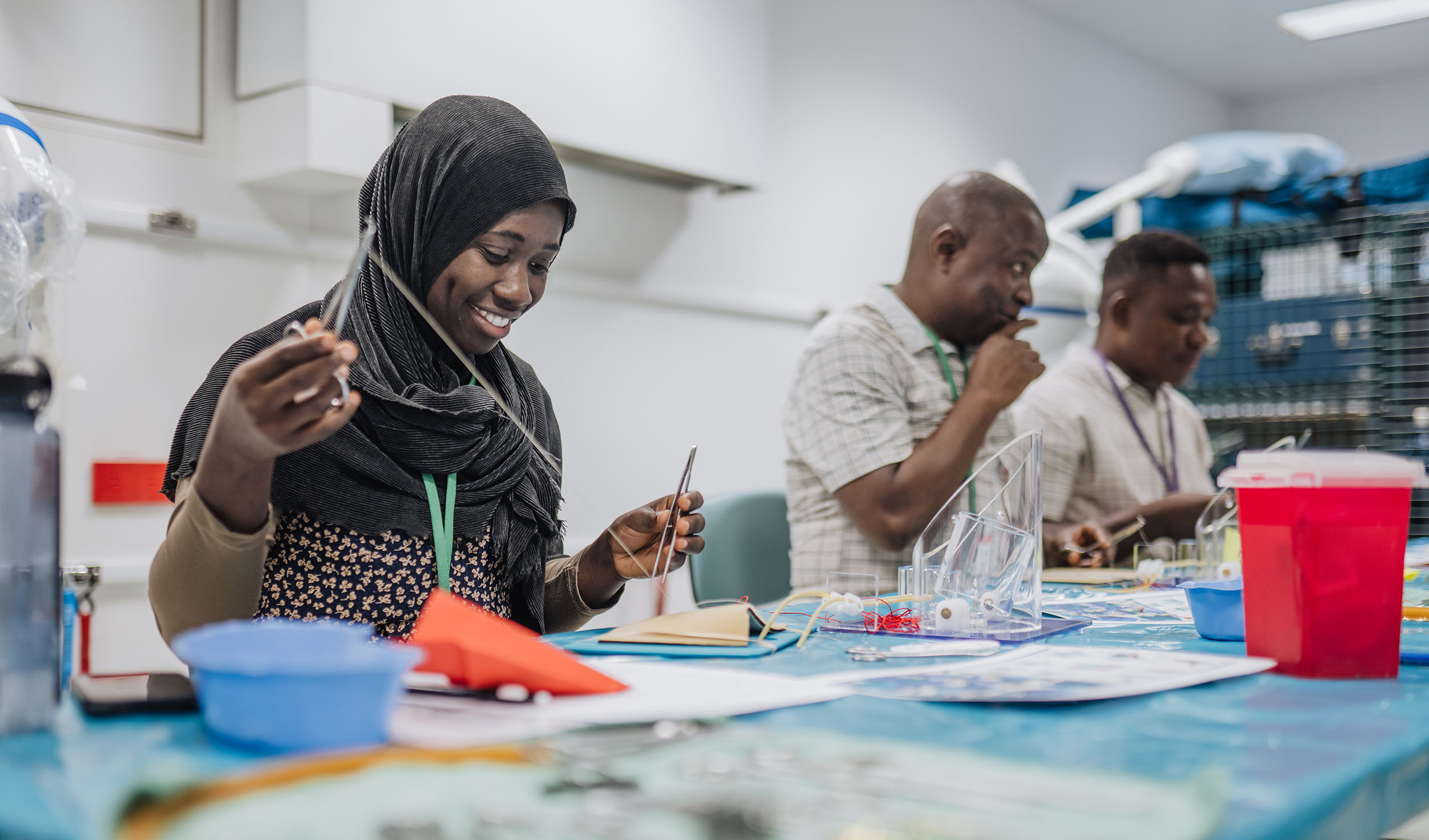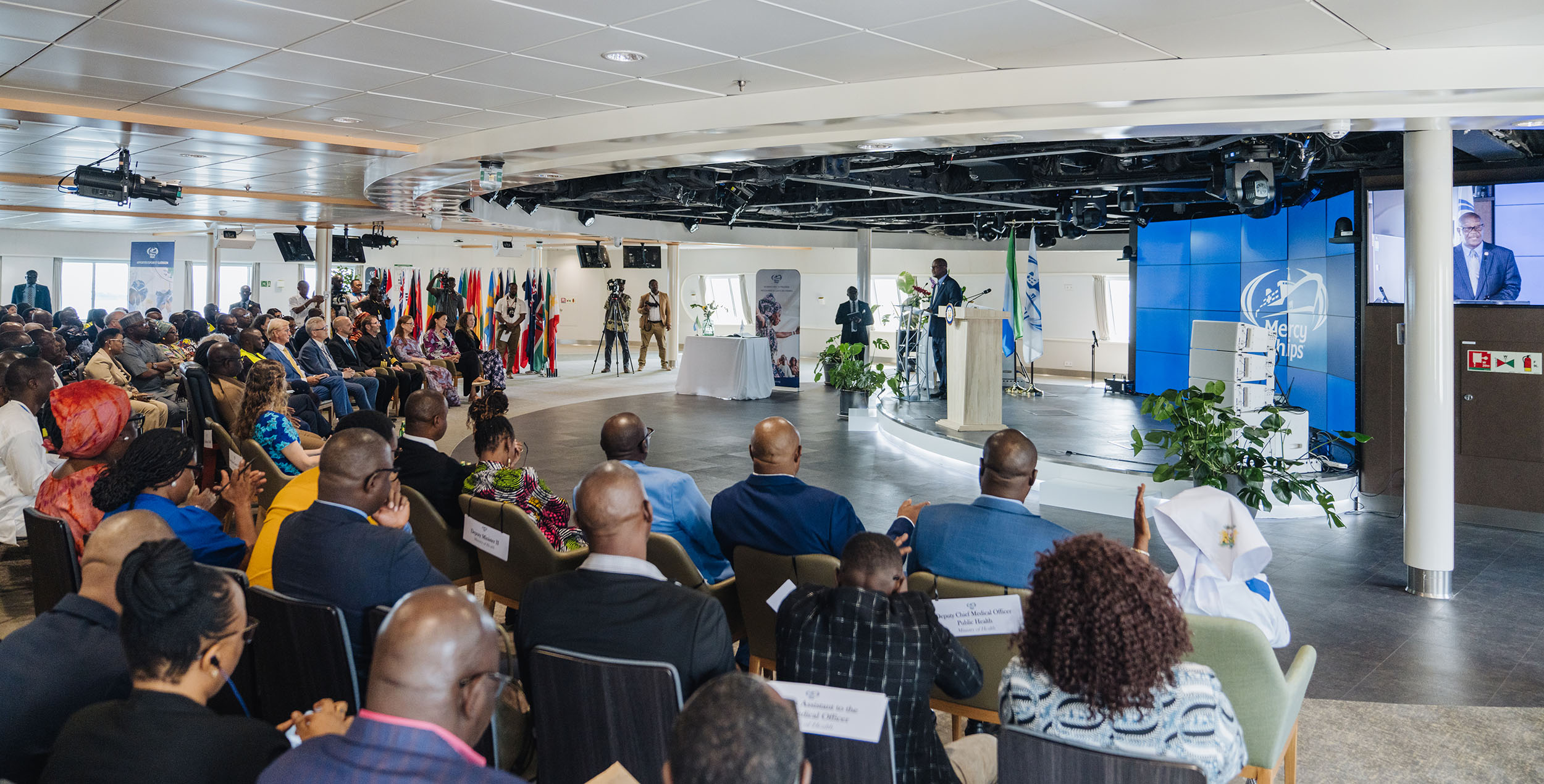
Mercy Ships’ Environmental, Social, and Governance (ESG) Initiatives
Environmental
Mercy Ships currently operates a two-ship fleet consisting of the Africa Mercy and the Global Mercy. Each Our vessel meets or exceeds all international environmental standards and regulations, including those relative to the environment, in particular the International Convention for the Prevention of Pollution from Ships (MARPOL), the main international convention covering prevention of pollution of the marine environment by ships from operational or accidental causes.
Mercy Ships’ newest hospital ship, the Global Mercy, was purpose-built with energy efficiency as a major component of her design. It lays a roadmap for Mercy Ships’ commitment to designing future eco-friendly vessels with energy efficiency in mind, expanding our positive impact on African partner nations while minimizing our impact on the environment. Key features on board the vessel include modern and efficient systems that provide reliable power, clean water, and air conditioning for the hospital and crew, all of which reduce the ship’s total energy consumption relative to earlier generation vessels. Additionally, filtering and treating air conditioning condensate water for technical uses on board reduces total potable water use by approximately 50 percent.

Social
The core of Mercy Ships mission is tangibly improving the lives of individuals and communities through the delivery of direct surgical services and education, training, and advocacy programs to its partner African nations. Since 1978, the organization has used its model of hospital ships to provide more than 117,000 lifechanging and lifesaving surgical procedures across a range of surgical specialties that are often inaccessible, unaffordable, or unsafe in the countries we serve. In tandem with these direct medical services, Mercy Ships has trained over 54,300 local professionals in their area of expertise, leading to stronger surgical care systems in the long term.
This transformative work is made possible by a crew of volunteers serving on board as well as staff working around the world, all of whom Mercy Ships is dedicated to supporting as they live out their mission. Mercy Ships continued to invest time and resources to assess the workplace culture and ensure staff and volunteers are represented and heard, allowing us to better fulfill our mission and create a work environment where everyone feels valued.

Governance
Mercy Ships’ governance model includes oversight from the Mercy Ships International Board of Directors consisting of men and women with diverse profiles from around the world. The Mercy Ships headquarters is in Garden Valley, Texas, our hospital ships operating in host countries in Africa. Canada is one of 16 affiliated independent charities around the world under the name Mercy Ships that raise funds and recruit volunteers to staff and run our hospital ships and related operations, and an Africa Service Center headquartered in Dakar, Senegal.
Canada and each national office are independent charities organized under the laws of its respective country, has its own Board of Directors, and complies with each country’s specific legislation for charity NGOs.
Mercy Ships Canada acknowledges that environmental, social and governance considerations can bolster our effectiveness, align our operations more closely with our mission, and earn and keep the trust of our donors. An emerging topic under social and governance is anti-corruption. The need for anti-corruption awareness and mitigation measures in project selection and other aspects informs our work.

The 17 Sustainable Development Goals (SDGs) were created by the United Nations as a universal call to end poverty, protect the planet, and ensure that by 2030, all people enjoy peace and prosperity. Mercy Ships activities support and align with the SDGs, with a particular emphasis on SDG 3: Good Health and Well-Being. We believe that health is at the center of these goals. Without good health, other vital pieces – like quality education, economic growth, and clean energy – are not truly sustainable.
As surgical and anesthesia specialists in eight areas – plastic reconstructive, maxillofacial, pediatric orthopedic surgery, general surgery, pediatric general surgery, women’s health (including obstetric fistula), ophthalmic, and dental – our programs focus on attaining the greatest health outcomes for patients requiring surgical treatment in the countries in which we work. We accomplish these outcomes through direct medical services and education and training to meet the needs of the future.
